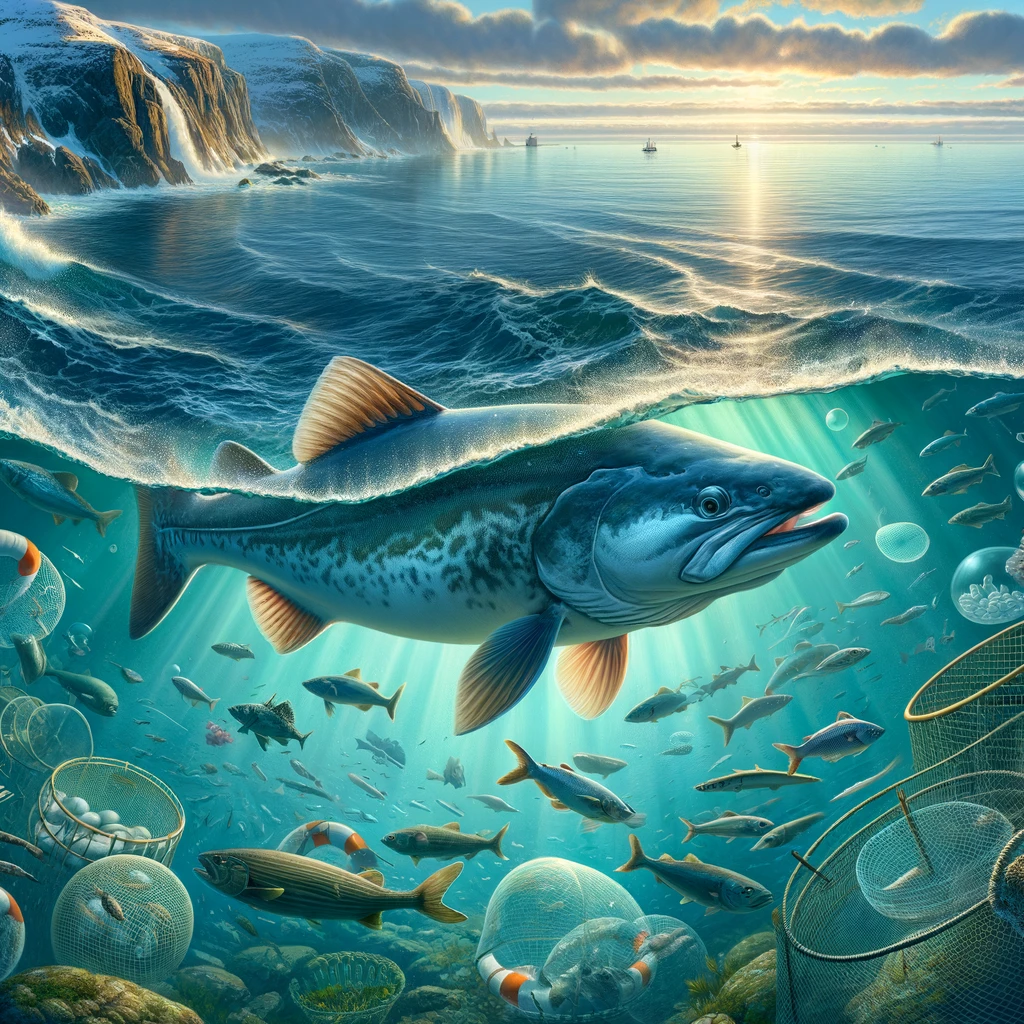
The Atlantic Cod (Gadus morhua), a staple in maritime diets and economies for centuries, continues to navigate the complex currents of ecological sustainability and nutritional significance. This remarkable fish, with its vast geographical spread across the cold and temperate waters of the North Atlantic, serves as a linchpin in the marine ecosystem and a vital resource for coastal communities.
Habitat and Distribution: A Cold Water Voyager
The Atlantic Cod’s habitat extends from the clean, icy waters of the Arctic Circle down to the temperate regions off the eastern coast of the United States, and across to the coasts of Europe and Greenland. This broad distribution speaks to the cod’s adaptability and the critical role it plays in the biodiversity of the marine environment. Yet, this same expanse has made it vulnerable to overfishing, leading to significant declines in population in areas once teeming with these fish.
Sustainable Fishing Practices: Ensuring a Future for Cod
In response to these challenges, sustainable fishing practices have become paramount in preserving Atlantic Cod stocks for future generations. Quotas, seasonal closures, gear restrictions, and marine protected areas are among the tools being employed to mitigate overfishing and bycatch, allowing for the recovery of cod populations. International cooperation, such as the work done by the Northwest Atlantic Fisheries Organization (NAFO), is critical, given the migratory nature of cod and the shared waters they inhabit.
Sustainable certification programs also play a crucial role in informing consumers. Organizations like the Marine Stewardship Council (MSC) certify fisheries that adhere to sustainable practices, offering a transparent pathway for consumers to support responsible cod fishing. These measures not only help preserve the species but also protect the livelihoods of fishing communities that depend on cod.
Nutritional Gold: The Oil of Cod Liver
Beyond its economic value, the Atlantic Cod is a powerhouse of nutrition, particularly noted for the oil extracted from its liver. Cod liver oil is rich in omega-3 fatty acids, vitamins A and D, and other essential nutrients that contribute to heart health, bone density, and immune system function. Its consumption dates back hundreds of years, yet modern science continues to uncover the unmatched nutritional benefits of this natural supplement.
The oil’s omega-3 fatty acids, EPA, and DHA, are linked to reduced inflammation, lower blood pressure, and improved cardiovascular health. Moreover, the high vitamin D content in cod liver oil is crucial in regions with limited sunlight, helping to prevent deficiency and supporting overall health.
The Path Forward: Conservation and Health
As the world grapples with the dual challenges of ecological conservation and public health, the Atlantic Cod stands at the intersection of these global concerns. Sustainable fishing practices offer a path forward, ensuring that this vital resource remains abundant for future generations. Simultaneously, the nutritional wealth found in cod liver oil presents a compelling case for its continued place in a balanced diet.
The Atlantic Cod’s story is a testament to the resilience of nature and the human capacity for stewardship. It underscores the importance of sustainable management of our natural resources, reminding us that the health of our planet and our own well-being are inextricably linked. As we move forward, the lessons learned from the cod’s journey through the ages can guide us towards a more sustainable and healthy future for all.